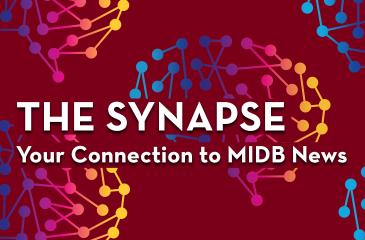The Synapse March 2021
A Message from the Institute on Community Integration Director
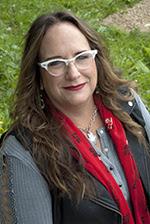
The Institute on Community Integration (ICI) is proud to be a part of MIDB to advance our work to improve the lives of children, youth, and adults with disabilities through interdisciplinary research, training, telehealth, and community outreach.
Currently spread across the U, ICI’s team will come together at the institute and showcase its approach to helping people with developmental and neurodevelopmental disabilities in all aspects of their life, throughout their life. Viewing disability as a unique difference rather than a problem to be fixed is a foundational aspect of ICI, one that its leaders aim to share with clinicians and researchers in MIDB.
Our goal is for MIDB to be a place where we think about how we can provide support to a child—whether it’s an infant or a three-year-old we’re assessing for a developmental disability—and their family so that when this person is an adult, they have a great life.
At ICI, we are particularly excited about the opportunities to break even more ground for people with disabilities by partnering with clinicians and faculty from new areas. Currently, ICI researchers don’t have direct access to patients, so housing clinical services at MIDB will help its researchers connect on projects about the holistic lives of people with disabilities, whether it involves school, work, or community involvement.
What’s unique about MIDB is the partnership that brings together health care, education, and community human service. We’re not conducting research about kids in a vacuum—we’re working together with researchers who have an interest in developmental and neurodevelopmental disabilities.
Thank you,
Amy Hewitt, PhD
Director, Institute on Community Integration

March 17 Impact Leaders Features MIDB Co-Director Damien Fair
Join us for an illuminating virtual conversation between UMN President Joan Gabel and 2020 MacArthur Foundation ‘genius grant’ recipients, Paul Dauenhauer and Damien Fair, as they reflect on their visionary research pursuits, the impact of the MacArthur Fellowship, and how the U encourages creative, trailblazing thinkers. Live on Wednesday, March 17, 1 p.m. Register now.

Breaking Silos and Reducing Replication
Since joining MIDB in 2020 as director of community engagement and education, Anita Randolph, PhD, has met with many colleagues around the University to explore possible collaborations. What she discovered through these conversations was an opportunity to leverage the synergy between the engagement goals of MIDB with other U centers and departments. “In all of these conversations, I realized that the engagement community is very siloed with each department doing its own engagement work,” said Randolph. “The duplication of programs was astounding.” She then pitched the idea to combine the strengths of all programs and work together to expand community engagement to make a tangible impact. Learn more.
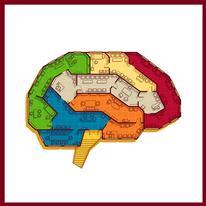
MIDB Featured in Star Tribune’s Where Discovery Creates Hope
“It’s our mission to improve the outcomes for all of our kids, to see them have higher achievement in education and, ultimately, to have a better life,” Michael Georgieff said in the Feb. 6 Star Tribune series Where Discovery Creates Hope that highlighted MIDB’s vision and work.

What Growing Up in a Pandemic is Doing to Our Youngest Kids’ Brains
We’re living through what some early childhood researchers call the biggest source of stress in a generation—the COVID pandemic. MPR's Angela Davis recently spoke with MIDB co-director Damien Fair about research into young developing brains and how caring adults can support children and their families. Listen to the program.
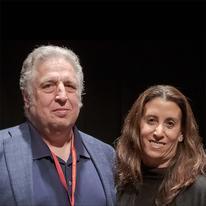
Early Philanthropic Support for MIDB
The Lynne & Andrew Redleaf Foundation was one of the first donors to support MIDB and its efforts to improve the lives of children, adolescents and families throughout Minnesota and beyond. Their investment helped establish the institute as well as ensure its long-term sustainability and success through creating the Redleaf Endowed Directorship which is held by Damien Fair. The generosity of private donors like the Readleafs allows MIDB to broaden our reach into the community and strengthen our position as a national leader in designing and developing a project of this magnitude and significance. Learn more about philanthropy efforts to advance MIDB’s groundbreaking work in early-child and adolescent brain health.

Developmental Cognitive Neuroscience in the Era of Big Data
MIDB co-director Damien Fair recently presented at the the Medical School Dean’s Lecture Series on the early days of cognitive neuroscience and fMRI, and learned lessons from Big Data in developmental cognitive neurosciences across and within subjects. Watch the presentation.
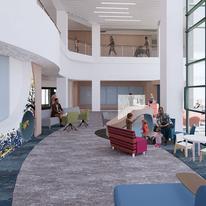
What Does the MIDB Mean to You? Request for Inspirational Quotes
The main lobby of the new MIDB facility will feature a wall area that honors donors and highlights inspirational quotes. The goal is to create an inspirational area that is welcoming, inclusive, and representative of the various communities the MIDB will serve. Please consider submitting a quote that showcases MIDB's vibrancy and demonstrates its support by the broader community. Submit your quote to Kristi Flanagan Villar at [email protected].
